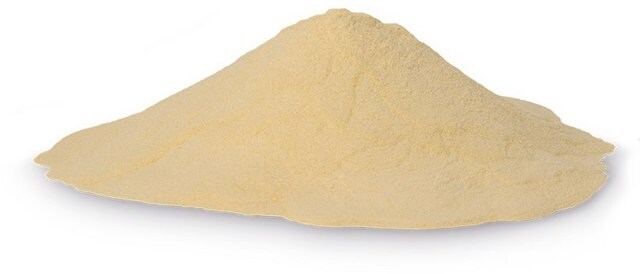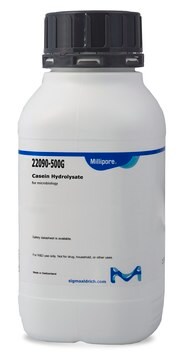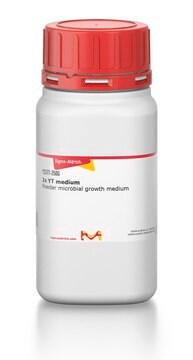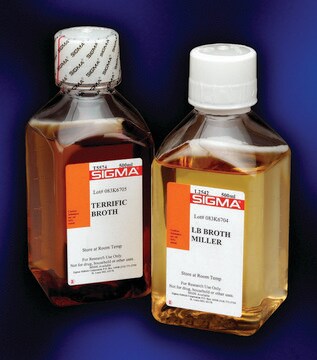N3643
NZCYM Broth
Powder microbial growth medium
Sinónimos:
Broth medium
About This Item
Productos recomendados
grade
Molecular Biology
for molecular biology
sterility
non-sterile
form
powder
composition
Casamino Acids, 1 g/L
MgSO4, 0.98 g/L
NaCL, 5 g/L
Tryptone, 10 g/L
Yeast extract, 5 g/L
technique(s)
microbiological culture: suitable
pH
6.8-7.2(2.2% solution)
application(s)
food and beverages
microbiology
storage temp.
room temp
suitability
nonselective for Escherichia coli
nonselective for coliforms
General description
Application
Features and Benefits
- Standard formulation
- Convenient package sizes
- A budget-friendly alternative to liquid
Reconstitution
Replaced by
Storage Class
11 - Combustible Solids
wgk_germany
WGK 3
flash_point_f
Not applicable
flash_point_c
Not applicable
ppe
Eyeshields, Gloves, type N95 (US)
Elija entre una de las versiones más recientes:
¿Ya tiene este producto?
Encuentre la documentación para los productos que ha comprado recientemente en la Biblioteca de documentos.
Los clientes también vieron
Nuestro equipo de científicos tiene experiencia en todas las áreas de investigación: Ciencias de la vida, Ciencia de los materiales, Síntesis química, Cromatografía, Analítica y muchas otras.
Póngase en contacto con el Servicio técnico






